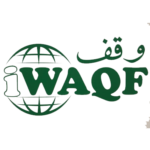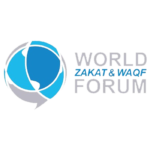Insights from INCEIF: Towards Financial Fairness – A Discussion on Rule 78
Date: January 22, 2025
Location: INCEIF University Campus, Kuala Lumpur
Awqaf Africa had the privilege of participating in the insightful session at INCEIF University titled “Towards Financial Fairness: Why It’s Time to Remove Rule 78.” The event brought together prominent industry leaders, academics, and students to discuss the importance of transparency and fairness in financial practices, particularly within the Islamic finance ecosystem.

Key Highlights from the Program
The session explored:
1. The disproportionate burden Rule 78 places on borrowers, particularly in the early stages of loan repayment.
2. The role of Bank Negara Malaysia’s policy change in fostering financial transparency and equity.
3. The dynamics of risk management for banks when offering floating versus fixed-rate products.
4. The critical importance of consumer education in understanding financial products and their long-term implications.
Engaging Discussions with African Scholars
A notable highlight of the day was my time with some distinguished students from Africa, who brought unique perspectives to the discussion. These individuals, with backgrounds in Fintech Islamic Venture Capital and Food Security in the Islamic Perspective, shared invaluable insights into how financial fairness can be integrated into broader developmental goals.
One such conversation was a 30-minute fireside chat with a brilliant scholar named Ibrahim, who focuses on food security within the Islamic framework. This engaging discussion sprouted the idea of extending such intellectual exchanges on a premier level, where these exceptional minds can share their expertise on a larger platform.
Awqaf Africa hopes to host these brilliant individuals and others like them to showcase their intellect and bring transformative solutions for the benefit of all.

A Side Chat with Mr. Amir
In a separate conversation with Mr. Amir, Senior Vice President of Islamic Banking at UOB Bank, I learned about the nuanced impacts of Rule 78. He emphasized:
- Rule 78 does not serve everyone equally and often widens the gap between the rich and the poor.
- Banks tend to gain more under Rule 78, especially during the early phases of loan repayment.
- The choice between floating and fixed rates depends on the borrower’s financial goals and exit strategy for the loan.
Esteemed Speakers and Panelists
The panel featured distinguished speakers:
- Mr. Rafe Haneef: Group Chief Executive Officer, MBSB Holding
- Mr. Amir Altafakh Yusof: Representative, Association of Islamic Banking and Financial Institutions Malaysia (AIBIM)
- Prof. Dr. Zulkarnain Muhamad Sori: Associate Dean and Senate Member, INCEIF University
- Moderator: Dr. Mohd Zaidi Md Zabri: Director (Interim), Centre of Excellence for Research and Innovation in Islamic Economics (RISE), ISRA Institute, INCEIF University
Takeaways for the Industry
This program highlighted:
- The importance of aligning financial practices with ethical and equitable standards.
- How the removal of Rule 78 could lead to a more balanced and consumer-friendly financial ecosystem.
- The need for financial institutions to innovate while ensuring fairness for all consumers.
Awqaf Africa’s Commitment
Awqaf Africa is committed to championing financial equity and ensuring inclusivity in the global Islamic finance landscape. These discussions inspire us to enhance our projects and initiatives, particularly in promoting financial literacy and access to fair financing options.
Acknowledgment
We express our gratitude to INCEIF University for hosting this impactful session and facilitating meaningful dialogue among industry stakeholders.

Awqaf Africa is a prominent organization dedicated to empowering communities across the African continent. Established to foster sustainable development and social welfare, Awqaf Africa focuses on harnessing the potential of endowments (awqaf) to drive positive change. Through strategic initiatives, partnerships, and impactful projects, Awqaf Africa endeavors to address socio-economic challenges and promote prosperity within African societies.
- Choose your favourite cause
- Register to our website !
- Donate the amount you like
- Stay tuned about cause






Leave a Reply